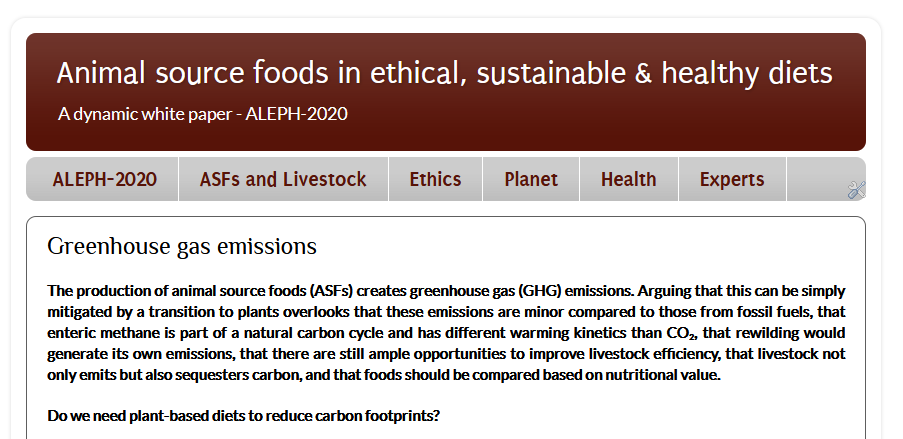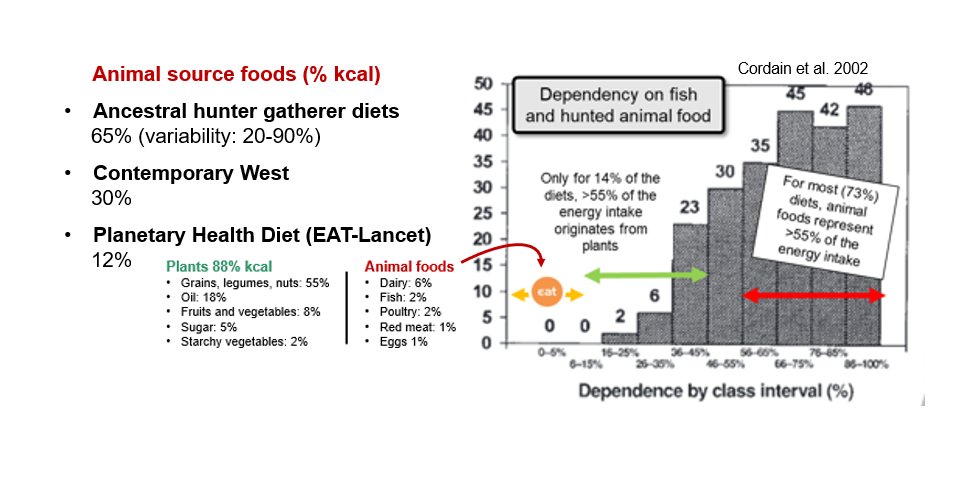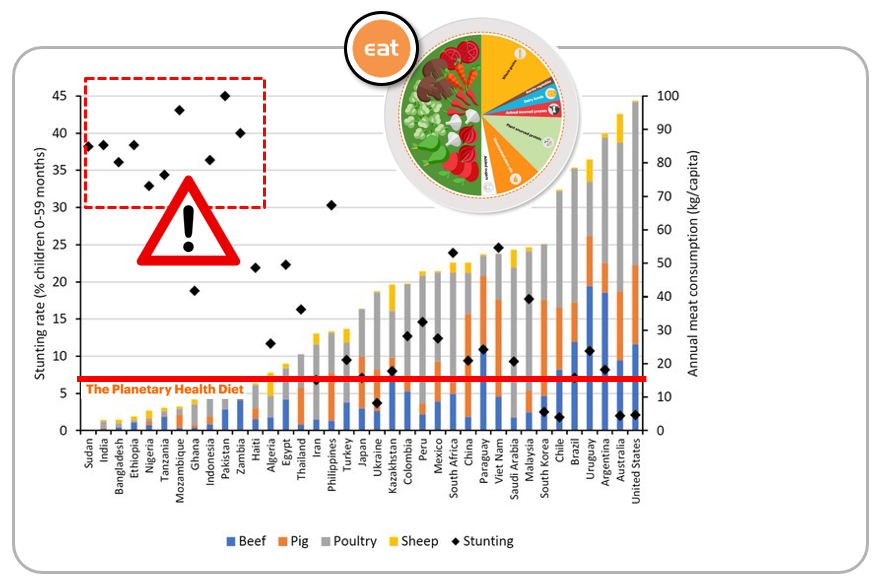
Are #vegan diets really the 'single biggest way' to reduce our carbon footprints & environmental impact on the planet? We argue that this is a highly misleading claim & that the evaluation of dietary change comes with a lot of context & complexity
🧐📑➡️: aleph-2020.blogspot.com/2019/06/greenh…
🧐📑➡️: aleph-2020.blogspot.com/2019/06/greenh…

1) Global data shouldn't be used to evaluate local contexts
Regional differences are important & due to very large variations in feed digestibility, slaughter age & weight, climate conditions, management, sociocultural factors, & nutrient security.
Regional differences are important & due to very large variations in feed digestibility, slaughter age & weight, climate conditions, management, sociocultural factors, & nutrient security.
2) Further mitigation is possible
A lot of margin is left for higher productivity, feed strategies, veterinary care, smart use of manure, & herd management. A reduction of waste, the re-use of meat-processing by-products, & the valorization of biogas also hold potential.
A lot of margin is left for higher productivity, feed strategies, veterinary care, smart use of manure, & herd management. A reduction of waste, the re-use of meat-processing by-products, & the valorization of biogas also hold potential.
3) Restricting animal foods only entails a small effect
For Westerners, the effect isn't only small on a yearly basis (1-6%) but especially so on a lifetime of emissions. Some vegetarians may even have higher impacts than some omnivores. Mock products do not solve the issue.
For Westerners, the effect isn't only small on a yearly basis (1-6%) but especially so on a lifetime of emissions. Some vegetarians may even have higher impacts than some omnivores. Mock products do not solve the issue.
3bis) Aren't we scapegoating animal foods to downplay our non-dietary lifestyle effects?
Taking a flight, for instance, easily offsets one or more years of veganism. Yet, cars, tourism, pets, & smart phones receive little attention in comparison to the dietary quick-fix claims.
Taking a flight, for instance, easily offsets one or more years of veganism. Yet, cars, tourism, pets, & smart phones receive little attention in comparison to the dietary quick-fix claims.
4) Nutritional value (& other benefits) should not be overlooked
The higher carbon footprint of nutrient-dense foods can (partially) be offset by a higher nutritional value. Policies that would reduce GHG emissions but are nutritionally harmful or incomplete should be dismissed.
The higher carbon footprint of nutrient-dense foods can (partially) be offset by a higher nutritional value. Policies that would reduce GHG emissions but are nutritionally harmful or incomplete should be dismissed.
5) Livestock farming also sequesters carbon
Given that proper grassland management improves soil carbon stocks, offsetting of emissions can be substantial (& sometimes complete). This is commonly overlooked in conventional assessments & GHG inventory reports.
Given that proper grassland management improves soil carbon stocks, offsetting of emissions can be substantial (& sometimes complete). This is commonly overlooked in conventional assessments & GHG inventory reports.
6) Rewilding & afforestation are no panacea
Both are good, but potential is limited. Rewilding would replace livestock with other methanogenic animals. Massive afforestation overlooks practical constraints & is not necessarily more effective than grasslands.
Both are good, but potential is limited. Rewilding would replace livestock with other methanogenic animals. Massive afforestation overlooks practical constraints & is not necessarily more effective than grasslands.
7) Methane should be treated differently than CO2
Beef is excessively blamed. Yet, methane from ruminants is part of a biological cycle which doesn't bring in new carbon or add to warming, provided there is no increase in emissions/herd size. It should be considered as such.
Beef is excessively blamed. Yet, methane from ruminants is part of a biological cycle which doesn't bring in new carbon or add to warming, provided there is no increase in emissions/herd size. It should be considered as such.
8) Co-product benefits are ignored
LCAs usually do not factor in non-edible products & services associated with livestock production (eg hides, wool, fats, organs, milk, bone, serum, manure, draught power, etc), which would further lower the carbon footprint of animal foods.
LCAs usually do not factor in non-edible products & services associated with livestock production (eg hides, wool, fats, organs, milk, bone, serum, manure, draught power, etc), which would further lower the carbon footprint of animal foods.
Dietary change shouldn't be based on simplisms (eg, meat=bad/plants=good). Context matters.
More background, details & examples for each of the above-listed 8 points can be found on this website (backed up with links to scientific studies): aleph-2020.blogspot.com/2019/06/greenh…
More background, details & examples for each of the above-listed 8 points can be found on this website (backed up with links to scientific studies): aleph-2020.blogspot.com/2019/06/greenh…
• • •
Missing some Tweet in this thread? You can try to
force a refresh










